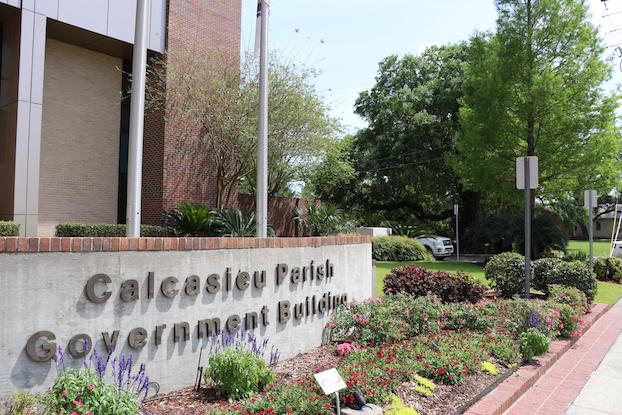Jim Beam column:Landry tax plan complicated
Published 6:36 am Saturday, October 12, 2024

- Richard Nelson, secretary of the Louisiana Department of Revenue. is the point man for Republican Gov. Jeff Landry's tax reform plan.(Photo courtesy of the Louisiana Illuminator).
Louisiana voters are getting bits and pieces of Republican Gov. Jeff Landry’s tax reform plan that they may be asked to approve next March. The governor is expected to call a November special session to get legislators to enact his plan.
If members of the Legislature go along with Landry’s plan, he may face the toughest selling job he has had since he took office in January. Louisiana history has proved that this state’s voters aren’t too happy about reform, especially when it involves taxes.
The late-Gov. Edwin W. Edwards, who began the first of his four unprecedented terms in 1972, got skeptical voters to approve a new state constitution in 1974. However, Edwards was a reformer at the time and he supported legislators who reformed many of their operations.
The final vote on the constitution on April 20, 1974, was 358,588 in favor and 262,030 against.
Dave Treen in 1980 became the state’s first Republican governor since Reconstruction after the Civil War. Edwards gave Treen a hard time during his four years and Edwards won his third term in 1984.
Former U.S. Rep. Buddy Roemer led the 1987 gubernatorial election and Edwards withdrew rather than face Roemer in the general election. Edwards left Roemer with a large budget deficit, so he eventually came up with a tax reform program of his own in 1989.
Despite a prolonged selling job, voters rejected Roemer’s tax plan, some voters mistakenly believing he was trying to change the homestead exemption. The vote was 55% against and 45% for.
Edwards won his fourth term when he defeated Republican David Duke, a former Ku Klux Klan leader, in 1992. Edwards also had budget problems and supported a state constitutional convention in 1992.
The convention came up with a major unnumbered amendment that made major changes to the state’s tax program. It was rejected by 62% of the voters. There were six other numbered amendments on the ballot and voters rejected all of them. They said they wanted to be sure the tax amendment was defeated.
The only significant tax reform program approved since the 1974 constitution came in 2002. It was sponsored by the late-state-Rep. Vic Stelly of Moss Bluff and it became known as the Stelly Plan.
Stelly’s plan raised state income taxes to make it possible to eliminate state sales taxes on food purchased for home consumption, residential utilities and prescription drugs.
News reports at the time said Stelly made over 130 speeches across the state explaining his tax plan. The plan was narrowly approved 51% to 49%.
The late-Mike Foster was governor at the time and he called it the upset of the century. Unfortunately, legislators reduced the income taxes in 2008 and the state experienced budget shortfalls for the next seven years.
Those eliminated sales taxes are in the state constitution and Gov. Landry said he has no plans to change that. Voters would definitely oppose any effort to do it.
Landry and Richard Nelson, his secretary of the state Department of Revenue, are promoting major tax changes. They want to create flat individual and corporate income taxes, increase tax deductions, eliminate a number of tax exemptions and credits and expand the state sales tax to cover a number of services not presently taxed.
Their plan would also pay off some major retirement debt in order to make teacher pay raises permanent and renew a 0.45% state sales tax and 2% business utilities tax increase. Both are currently scheduled to go off the books next June 30.
The eventual goal is to eliminate individual and corporate income taxes, the corporate franchise tax and inventory taxes. Those taxes currently raise over $5.5 billion in taxes and something has to replace them for that to happen.
Landry said he thinks legislators will go along with his plans in order to make Louisiana a more attractive place for investors.
“We in this state have been on the losing end of an economic game other states have been beating us at,” he said.
Nelson said the proposed legislation models a number of different states, most notably North Carolina, and that is a plus. However, as we said at the beginning, Landry and Nelson are proposing a complicated tax plan and their selling job may be the toughest they have ever had to face.
Jim Beam, the retired editor of the American Press, has covered people and politics for more than six decades. Contact him at 337-515-8871 or jim.beam.press@gmail.com.
| ReplyForward
Add reaction |





